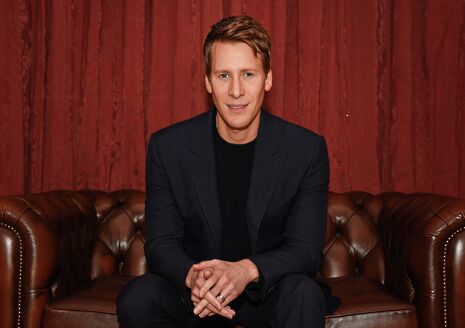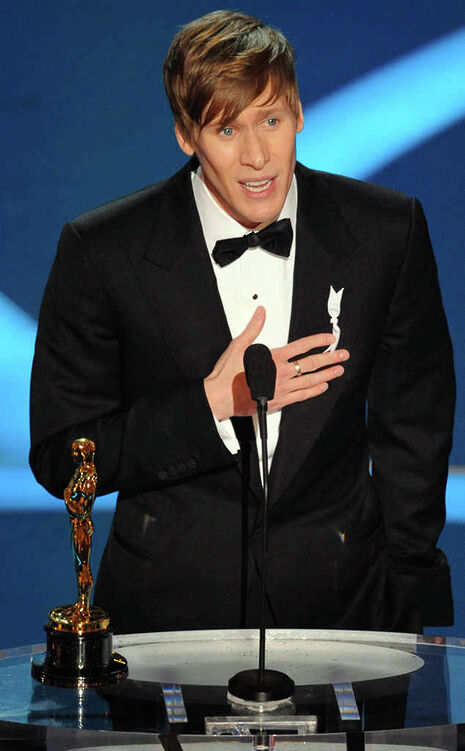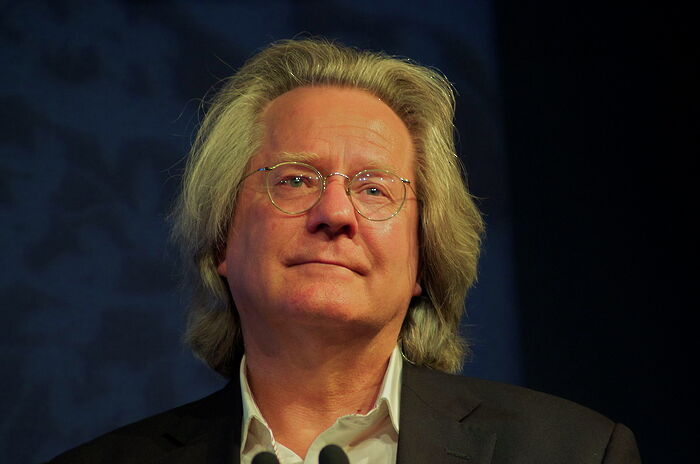Dustin Lance Black: ‘If you want to change a mind, you have to start with someone’s heart’
Lewis Thomas meets the American LGBT activist and Oscar-winning screenwriter

Dustin Lance Black has made it his mission to tell those stories which he thinks deserve to be told: stories of marginalisation, persecution, and hope.
Sitting down with Varsity, he appears supremely relaxed, sipping his drink and chatting away. However, there’s an edge beneath his smile: this is a man who knows the urgency of his writing, and the role that good writing with a strong message can play not only in cultural debate, but in policymaking.
This is made clear when he describes what motivated him to write Milk – a biopic of the 1970s LGBT leader Harvey Milk – which won him the Oscar for best screenplay in 2008. “I was a young, Mormon, military, conservative, Southern kid; I had no idea that there was such a thing as an openly gay man – much less one who succeeded in what it was he wanted to do.”
“I thought that you went to hell, that you lost your family, and that you survived in shame and solitude. That had led me to contemplate very dire solutions. When I first heard his story... I thought that my life perhaps had the potential for love and success. And that was lifesaving for me. And his story was lost! I’d go and ask people if they’d heard of Harvey Milk, and they hadn’t.”

However, Lance Black’s motivation for the film wasn’t limited to telling Milk’s story for the sake of it. “He had this strategy of coalition building between minorities that had proven successful, and I felt like we had lost this message. Minorities were doing a lot of investigating about how they were different but not a lot of working together, and we were watching ourselves lose at the ballot box.”
Milk was written during the ‘culture wars’ of the early two-thousands, when John Ashcroft attacked scantily clad statues and American state legislatures sought to constitutionally ban same-sex marriage. However, Milk has acquired a new significance recently. “There was a period of about eight years when we were working together again, and we had a lot of success. But we’re back in a period now where we could heed the lessons of Harvey Milk – and others – again and build those coalitions so we stop electing Donald Trumps.”
“It’s up to us to make sure that Donald Trump and his administration is the last gasp of a dying dinosaur”
Lance Black cut his teeth writing in one phase of the US culture war; after the Obama years, he has found himself back in the trenches for the next phase.
Talk turns from Milk to Lance Black’s new project, When We Rise, a depiction of American LGBT history. Asked how he thinks Trump’s presidency will be looked upon by historians of LGBT rights, he stresses our responsibility as citizens. “That’s up to us. It’s up to us to make sure that Donald Trump and his administration is the last gasp of a dying dinosaur. That this is the last cry of a very vocal minority who do not believe that people of difference ought to have the same shot in life. It’s really up to us: it’s not just going to happen on its own.”
He is optimistic that this is the last gasp of the dinosaur. “I have great faith in us as the human race to see the evil and the wrong that is being done by this administration, and to figure out what it is we need to do to resist, and to fight back – to make sure that his presidency is over within the next three years.”
“Telling stories is one of the most potent skills in changing culture, because it starts with changing hearts”
Black suggests that it will not do for those opposed to Trump to prevent him from advancing his agenda: the foundations of that agenda, and those who articulate it, must be pushed back. “This isn’t about politics anymore. This is about making sure we preserve as much peace as we can, as much of the planet as we can, [and] as much of the lives and self-esteem of the people whom he is saying have less value than heterosexual, white, Christian men.”
On the political role of artists and ordinary citizens, he unequivocal. “Everyone has their own talents that they can bring to bear at this moment in our history; how can you influence the people around you?” And what is Black’s own skill? “I tell stories. Telling stories is one of the most potent skills in changing culture, because it starts with changing hearts.”
The secret to changing views lies not in “talking about a constitution, laws, science, statistics – even if you know they’re on your side – because that just puts people on the defensive. If you want to change a mind, you have to start with someone’s heart... the best way to do that is to tell a story, and the most valuable story to tell is your own.”
“That story has the power to change a heart; that has the power to change a mind; and that is where we start to change the culture.” The ‘culture wars’ will not be won at the ballot box; they will not be won in statehouses. They will be won by winning hearts and changing minds through storytelling: “when people tell the damn truth... tell a story and change the world.”

Professor Anthony Grayling: ‘The paradox of liberalism is that it tolerates intolerant views
“The history’s not written, and I think it’s important to make sure that we work to make sure that this is not where history is headed.” It’s a similar sentiment to Churchill’s quip that “history will be kind to me, for I intend to write it.” Lance Black depicts history and works to shape it. He is a writer, an activist, and a man with a clear sense of purpose.
He tells the truth and, in doing so, tries to change society. His writing has already impacted hearts and minds throughout the US and elsewhere; whether it will continue to do so remains to be seen. This is a theme with Lance Black: we can hope that our work will have an impact, but the only way to ensure that it will is to continue with it.
He seems determined to do so
 News / Cambridge academics stand out in King’s 2026 Honours List2 January 2026
News / Cambridge academics stand out in King’s 2026 Honours List2 January 2026 Interviews / You don’t need to peak at Cambridge, says Robin Harding31 December 2025
Interviews / You don’t need to peak at Cambridge, says Robin Harding31 December 2025 Comment / What happened to men at Cambridge?31 December 2025
Comment / What happened to men at Cambridge?31 December 2025 News / Varsity’s biggest stories of 202531 December 2025
News / Varsity’s biggest stories of 202531 December 2025 News / Unions protest handling of redundancies at Epidemiology Unit30 December 2025
News / Unions protest handling of redundancies at Epidemiology Unit30 December 2025









